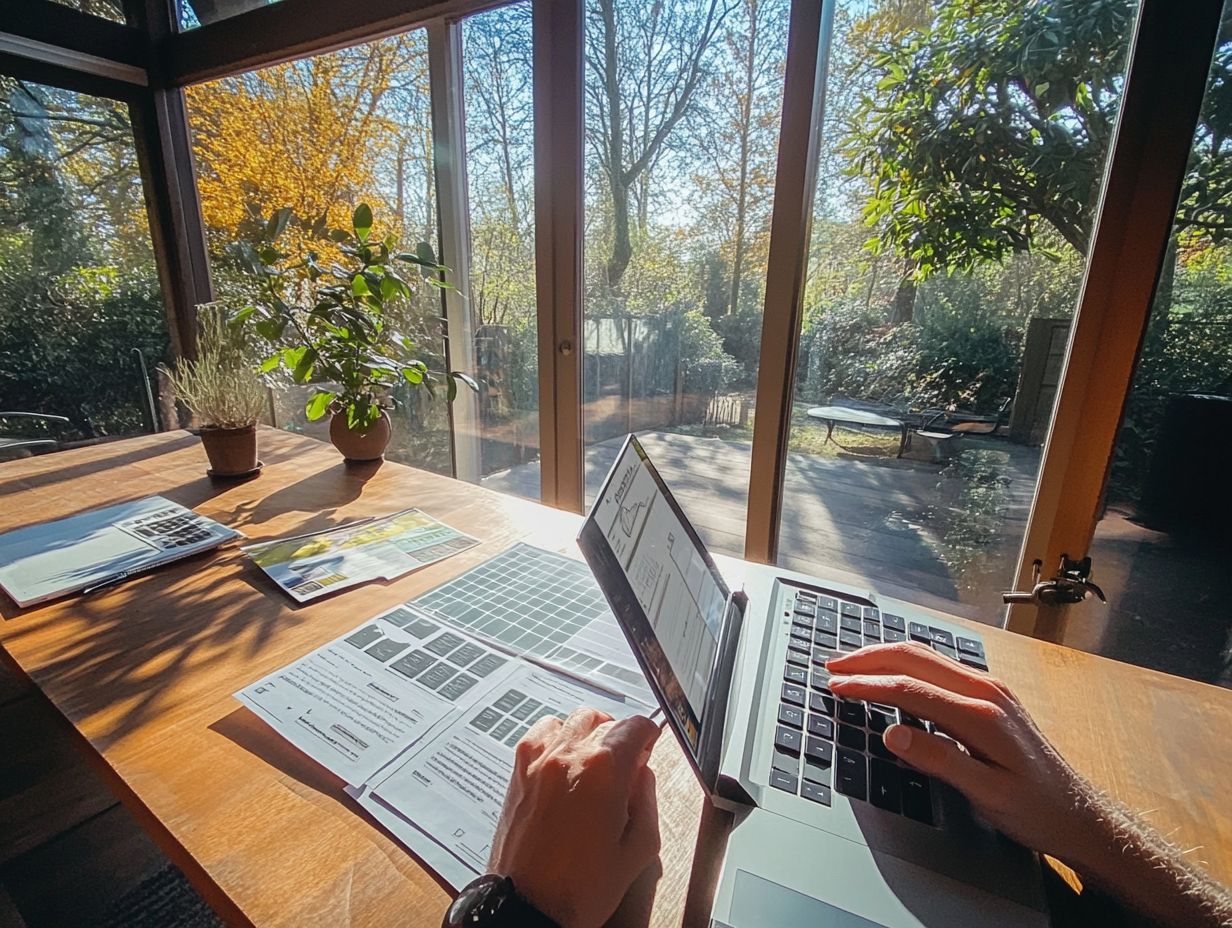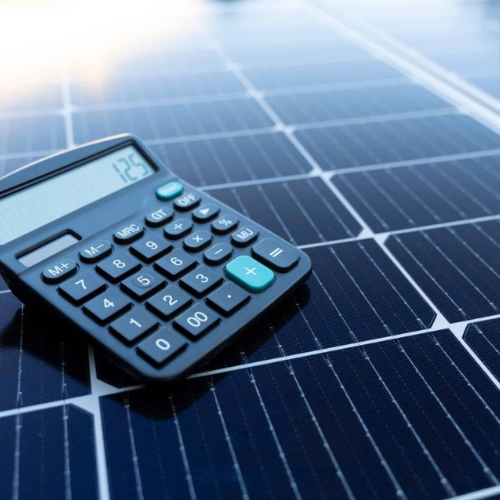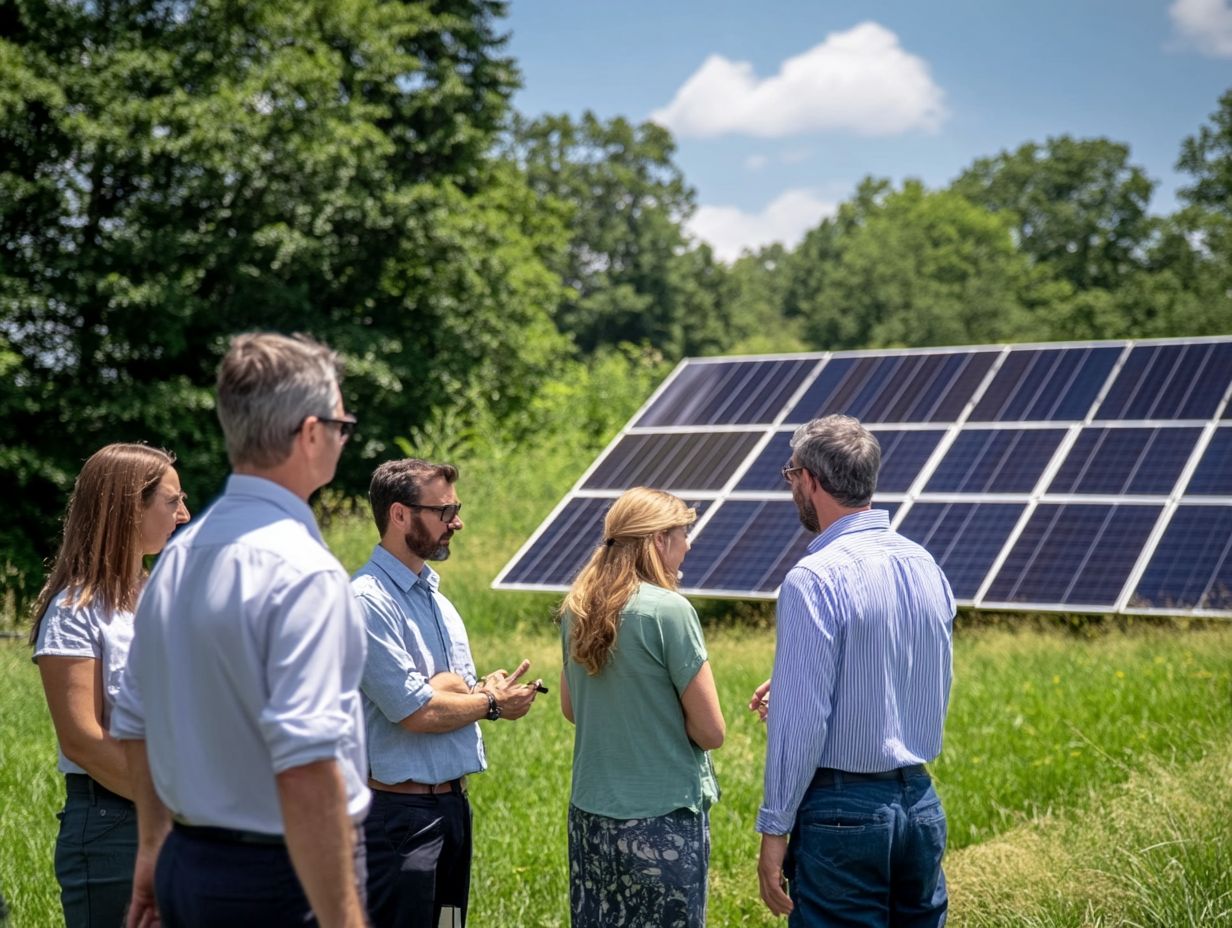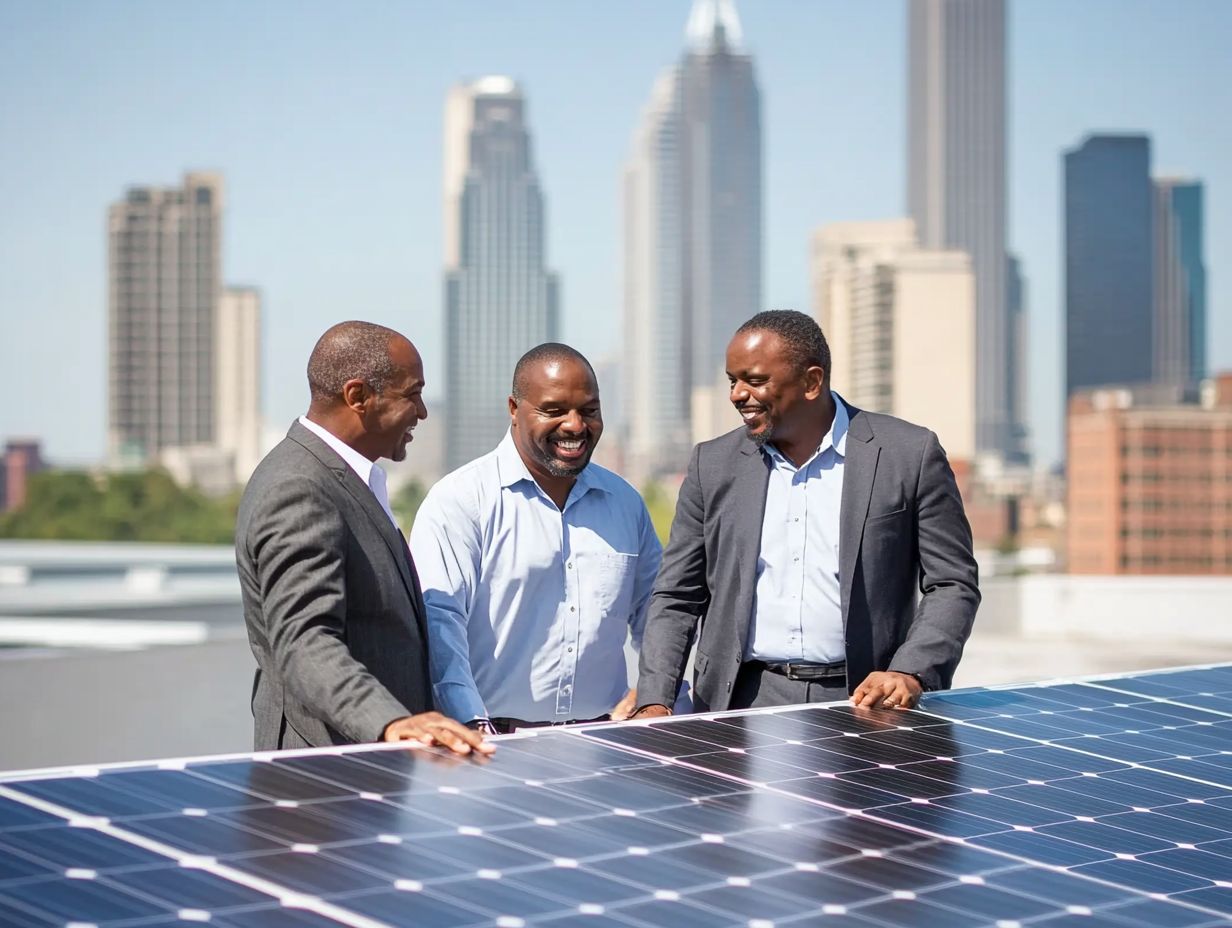Contents
- 1 Understanding Solar Quotes
- 1.1 What are Solar Quotes?
- 1.2 Key Factors Affecting Solar Costs
- 1.3 Types of Solar Systems
- 1.4 Understanding the Cost of Solar Energy
- 1.5 Getting Accurate Solar Quotes
- 1.6 Maximizing Understanding Solar Incentives and Rebates
- 1.7 Making the Decision to Go Solar
- 1.8 Frequently Asked Questions About Solar Energy
- 1.8.1 What are solar quotes and how can I understand them?
- 1.8.2 What factors affect the cost of solar quotes?
- 1.8.3 How can I determine if a solar quote is fair and reasonable?
- 1.8.4 Do solar quotes include all hidden costs?
- 1.8.5 What are some things to be cautious of when comparing solar quotes?
- 1.8.6 Is Investing in a More Expensive Solar System Worth It?
Understanding Solar Quotes
Solar energy is quickly becoming a popular choice for powering homes and businesses sustainably.
Navigating solar quotes and costs can be overwhelming for many. This article breaks down the essentials for you, covering everything from what solar quotes really include to the factors that affect prices.
You’ll get to explore the different types of solar systems available, learn how to estimate costs accurately, and discover the financial incentives that can make switching to solar a lot more appealing. By the end, you’ll be equipped with the knowledge you need to make an informed decision about harnessing solar energy for your needs.
What are Solar Quotes?

Solar quotes are key estimates that give you a clear picture of the costs involved in installing solar energy systems for your home or business. These quotes usually include a detailed breakdown of solar panel prices, installation costs, potential energy savings, and the pricing structure, which makes it easier for you to compare different solar energy providers and make informed choices.
By gathering multiple solar quotes, you can explore your options for financing, discover available federal tax credits and state rebates, and assess the overall solar energy potential for your area. It’s an essential step in planning your shift to renewable energy.
In-Depth Explanation of Solar Quotes
Solar quotes give you a detailed breakdown of the costs you might face when considering solar energy for your home or business. They provide insights into various solar providers in your area and typically include things like solar panel pricing, installation costs, and potential financing options that can shape your overall investment.
Beyond those core elements, solar quotes often cover expected energy savings, warranties on equipment, maintenance costs, and financing options, helping you get a clearer picture of the long-term benefits.
It’s really important to compare multiple quotes to see the range of options available to you. Checking out reviews from previous customers can also give you valuable insights into the reliability and quality of service from different providers.
Transparent quoting practices matter a lot; they make sure you’re aware of all the fees and charges, helping to build trust and avoid any unexpected costs later on.
Feldman, D., & Margolis, R. (2014). Q2/Q3 2014 Solar Industry Update. National Renewable Energy Laboratory. Link
Key Factors Affecting Solar Costs
When you’re thinking about solar energy for your home or business, it’s super important to get a grip on the different factors that can influence solar costs, since they can really impact your overall investment and return on investment (ROI).
Things like installation costs, the efficiency rating of photovoltaic (PV) panels, system size, maintenance costs, and installation fees all play a big role in figuring out the total cost of a solar energy system.
Plus, don’t forget that local regulations and incentives can vary a lot, which can affect the final price and your potential returns on investment.
By understanding these key factors, you’ll be in a much better position to make informed decisions about your solar project.
Variables Impacting Solar Prices
Several key factors impact solar prices, which can affect your overall investment and energy savings in the long run. Things like the size of your solar array, installation costs, and the specific pricing of solar panels all play a crucial role in determining the final cost you’ll face.
Geographical factors are also significant; if you live in an area with plenty of sunlight, you might generate more energy and see a better return on your investment. Your energy consumption patterns come into play too—if you use a lot of power, you might consider a larger system, which will influence the overall cost.
Then there are the incentives to think about, like federal tax credits or state-specific rebates, which can really vary the pricing strategies among different solar providers. By understanding these elements, you can make informed decisions that align with your energy needs and financial goals.
Types of Solar Systems
You’ll find there are several types of solar energy systems available to fit different energy needs, whether you’re looking for something for your home or a business.
Residential solar systems are mainly designed for home use, helping you save a good chunk on your utility bills and giving you a bit of energy independence. On the other hand, commercial solar installations are all about larger energy outputs to meet the demands of a business and achieve energy efficiency.
The main categories you’ll come across include grid-tied systems that connect directly to the utility grid and off-grid systems that work independently—perfect for those remote locations. Understanding these distinctions can really help you figure out the right solar solution for what you need.
Types of Solar Panels and Their Systems

When you’re thinking about investing in solar for your property, it’s crucial to understand the different types of solar panels and systems available. The most common type you’ll encounter are photovoltaic (PV) panels, used in both residential and commercial setups. But don’t be fooled—there are variations in technology and efficiency ratings that can really impact your energy output and costs.
You’ll find three prevalent types of solar panels: monocrystalline, polycrystalline, and thin-film technologies. Each comes with its unique advantages and is suited for different environments.
Monocrystalline panels are known for their high efficiency and sleek look, making them perfect for those urban rooftops where space is at a premium and sunlight is abundant, maximizing energy output and solar efficiency.
On the other hand, polycrystalline panels are often more budget-friendly and are a popular choice for larger installations, like solar farms, because they offer a lower cost per watt. Then there are thin-film technologies, which may not be the most efficient, but they bring flexibility and lightweight features to the table. This makes them ideal for unconventional applications, such as building-integrated photovoltaics or in shaded areas where traditional panels might struggle.
Grasping these differences is key to maximizing your energy generation based on your specific needs and conditions, ensuring a lower carbon footprint and contributing to sustainability.
Understanding the Cost of Solar Energy
Calculating the cost of solar is a crucial step in your decision-making process, helping you figure out if solar energy is a good fit for your property.
To get an accurate estimate, you’ll need to consider factors like the total cost per watt, installation costs, and any solar incentives that might apply, such as federal tax credits and state rebates.
By looking at these elements along with potential energy savings, cost analysis, and your return on investment (ROI), you can figure out your net savings over time, giving you a clearer picture of the financial benefits of making the switch to solar.
Key Factors for Solar Cost Estimation
When you’re estimating the cost of solar, there are several factors you should keep in mind to get a full picture of the financial implications. It’s not just about the initial installation costs; you also need to factor in ongoing maintenance costs, energy production estimates, and tax incentives, which can really affect your financial outlook over the life of your solar system.
Financing options for solar installations can make a big difference in both your cash flow and your long-term savings. For instance, if you decide to purchase solar panels outright, you might see immediate benefits in energy savings, but it comes with a hefty upfront investment. On the flip side, leasing or using solar loans can ease those initial costs, giving you the chance to explore flexible payment plans that fit your budget while considering your credit scores and financing rates.
Don’t forget to consider interest rates, payback periods, and any available incentives, such as utility incentives and renewable energy credits. These factors can significantly impact the overall cost-effectiveness of your solar investment and ultimately determine how much you’ll save on electricity bills over time.
Getting Accurate Solar Quotes
To get accurate solar quotes, you need to follow a structured approach that starts with a thorough solar assessment of your property and an understanding of your energy needs, possibly utilizing estimator tools and solar calculator for precision.
Begin by researching local solar energy providers and checking out customer reviews to get a feel for their reputation, service quality, and competitor comparison.
After you’ve narrowed down your options, request detailed project quotes that break down all the relevant costs, including installation, equipment, consultation fees, and financing options, to fully understand the project financing.
Having accurate quotes will not only help you budget effectively but also allow you to compare offers, understand the bidding process, and make sure you’re getting competitive pricing.
Steps for Obtaining Accurate and Reliable Solar Quotes
Getting accurate and reliable solar quotes isn’t just a matter of luck; it requires a systematic approach that kicks off with a thorough solar assessment of your property. You’ll want to evaluate your energy consumption, roof orientation, tilt angle, and the available space for solar panels. This way, you’ll have all the necessary info to present to potential solar providers.
Researching customer reviews is crucial for making informed decisions. By digging into these factors, you’ll start to see a clearer picture of your specific energy needs and preferences. Next up, it’s crucial to have an open line of communication with solar providers about your goals, budget, and any special features you want in your solar system. This helps them tailor their options to fit your unique situation.
Don’t underestimate the power of researching customer reviews either. They offer valuable insights into other people’s experiences, helping you figure out which companies are truly reputable and reliable. Taking the time to do a comprehensive assessment and engaging with providers can lead you to some informed decisions and make the installation process a whole lot smoother.
Maximizing Understanding Solar Incentives and Rebates

Understanding solar incentives and rebates can really help you cut down on your upfront solar costs when making the switch to solar energy, making it a much more appealing investment. Considering the installation fees and potential energy savings, it’s crucial to evaluate your energy consumption and system capacity to maximize your return on investment.
Federal tax credits and various state rebates can give you some financial relief, and figuring out how to take advantage of these solar incentives can boost your overall return on investment (ROI).
Plus, looking into financing options like solar leasing or power purchase agreements (PPAs) can lighten the financial load even more, letting you enjoy the environmental perks of renewable energy, such as reducing your carbon footprint, without breaking the bank right from the start.
Available Financial Incentives for Solar Installations
There are plenty of financial incentives out there for solar installations that can help you lower the overall cost of making the switch to solar energy. Federal tax credits can significantly cut down on your installation expenses, and state rebates might give you some extra financial support, making solar systems more accessible for both homeowners and businesses. Moreover, energy audits and solar assessments can provide insights into potential energy savings and system capacity, enhancing energy efficiency and sustainability.
On top of that, local municipalities and utility companies often throw in their own unique incentives, which can range from performance-based rewards to low-interest financing options. For instance, some states have set up renewable energy certificates (RECs) that add extra value to the power you generate. Understanding the pricing structure and financing rates can help navigate these options effectively.
The details on these incentives can vary a lot depending on where you are; some areas might offer fantastic programs that slash costs, while others may not have much support at all.
To maximize these incentives, check your local and state energy office websites. Additionally, consult with solar providers who are knowledgeable about each program. Navigating this landscape can help you lower those upfront costs and also boost the long-term economic viability of your solar projects. Consulting with a solar broker can assist in evaluating project quotes and conducting a competitor comparison to ensure you get the best deal.
Making the Decision to Go Solar
Deciding to go solar is a big step, and it’s important to look at several factors like your current energy consumption, financial aspects, and the climate benefits that come with renewable energy.
By closely examining your energy bills and assessing how solar energy can enhance your independence, considering factors like kilowatt-hour rates and electricity rates, you’ll have a clearer idea of the long-term savings you could enjoy.
Plus, considering the total costs of the solar project—everything from installation to maintenance—and evaluating warranty and product lifespan will help you make sure this transition fits well with your financial goals and values.
In the end, it’s all about moving toward a more sustainable lifestyle.
Key Factors to Consider When Switching to Solar Energy
When you’re thinking about making the switch to solar energy, there are several key factors that should guide your decision to make sure you’re fully informed about this significant investment in solar energy. Start by evaluating your energy bills and current consumption patterns; this will give you a clearer picture of how solar can help you achieve energy independence and long-term savings. Additionally, consider the environmental impact of your choice. Conducting a cost analysis using estimator tools and solar calculators can provide further clarity.
Along with looking at your energy costs, it’s important to assess the initial financial outlay needed for installation and see if there are any local incentives or rebates that could help lighten the load. You should also think about the technology’s lifespan and maintenance costs, ensuring that the long-term savings outweigh any immediate expenses. Considering financing rates and credit scores can help you find suitable loan options and payment plans.
Don’t forget to incorporate your personal values into this decision—some people prioritize reducing their carbon footprint, while others might be more focused on the return on investment.
Ultimately, a well-rounded evaluation that balances financial implications, taking into account solar industry trends and state policies, with a commitment to sustainability will lead you to a choice that feels just right for you.
Hoen, B., Adomatis, S., Jackson, T., Graff-Zivin, J., Thayer, M., Klise, G., & Wiser, R. (2015). Selling into the sun: Price premium analysis of a multi-state dataset of solar homes. Lawrence Berkeley National Laboratory. Link
Frequently Asked Questions About Solar Energy
What are solar quotes and how can I understand them?

Solar quotes are estimates provided by solar companies for the cost of installing a solar system on your property. They include information on the type and size of the system, equipment used, and the estimated cost. To understand solar quotes, it is important to compare quotes from different companies and consider the quality of the equipment and installation services offered.
What factors affect the cost of solar quotes?
The cost of a solar quote can be influenced by a variety of factors, such as the type and size of the solar system, the quality of the equipment and installation services, and the location of your property. Other factors that can impact the cost include the current market prices for solar systems and any available government incentives or tax credits.
How can I determine if a solar quote is fair and reasonable?
To determine if a solar quote is fair and reasonable, it is important to compare quotes from multiple companies and carefully consider the details of each quote. Look for a company that offers a quality solar system, efficient installation services, and a competitive price. Additionally, read reviews and ask for recommendations from friends or family who have installed solar systems.
Solar quotes should include all costs associated with the installation of a solar system, such as equipment, labor, and permits. However, hidden costs may still arise, so it is important to carefully read the quote and ask the company about any additional fees or charges. It is also a good idea to have a written agreement with the company to ensure that all costs are covered in the quote.
What are some things to be cautious of when comparing solar quotes?
When comparing solar quotes, it is important to be cautious of companies that offer significantly lower prices than others. This could be an indication of poor quality equipment or installation services. It is also important to carefully read the details of the quote and ask for clarification on any unclear information. Additionally, beware of companies that pressure you to sign a contract immediately.
Is Investing in a More Expensive Solar System Worth It?
The cost of a solar system can vary greatly, and it may be tempting to choose a cheaper option to save money. However, investing in a higher-priced system can often yield greater long-term benefits. A high-quality solar system, possibly incorporating advanced solar technology and efficient net metering, can provide more energy and last longer, resulting in greater savings on your electricity bill and a higher return on your investment.







